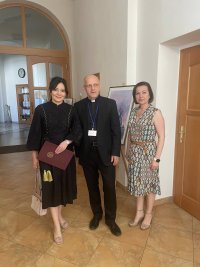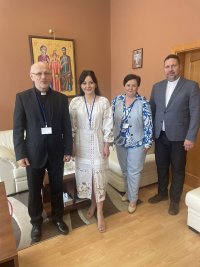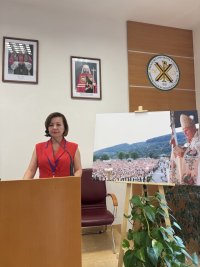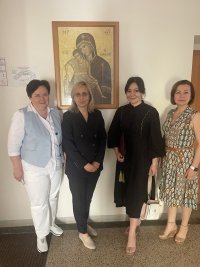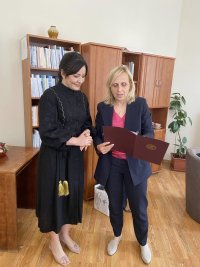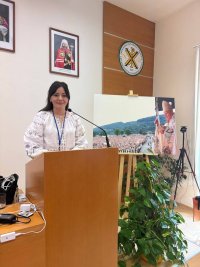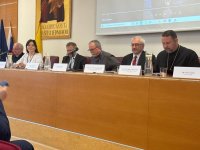Transcarpathian Education and Research Centre of WUNU in the international scientific arena
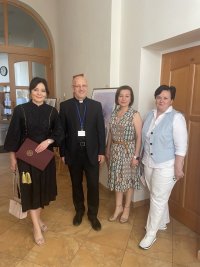 Recently, the 12th International Conference in Philosophy and Canon Law was held in Prešov (Slovak Republic), bringing together scholars and researchers from various countries. A delegation from the West Ukrainian National University took part in the conference: Vice-Rector for Academic Affairs and Research Uliana Koruts, Dean of the Faculty of Social Sciences and Humanities Oksana Homotiuk, and Director of the Transcarpathian Education and Research Centre of WUNU Edita Grabar.
Recently, the 12th International Conference in Philosophy and Canon Law was held in Prešov (Slovak Republic), bringing together scholars and researchers from various countries. A delegation from the West Ukrainian National University took part in the conference: Vice-Rector for Academic Affairs and Research Uliana Koruts, Dean of the Faculty of Social Sciences and Humanities Oksana Homotiuk, and Director of the Transcarpathian Education and Research Centre of WUNU Edita Grabar.
In her report, Vice-Rector for Academic Affairs and Research Uliana Koruts spoke about the protection of human rights, the right to self-determination and the contribution of John Paul II as the ‘Pope of sovereignty’: ‘I would like to quote the words of John Paul II, which since 2001 (his visit to Lviv) and to this day remain fateful for Ukrainians: “Do not be afraid to be a free nation. Ukraine will be what you build it to be.”’
The conference was held at the Greek Catholic Theological Faculty. During the plenary session, Edita Grabar delivered a comprehensive report on the topic: ‘The Greek Catholic Church in Svaliava: Challenges of Soviet Persecution and Support from Pope John Paul II,’ which highlighted little-known pages of spiritual resistance, the preservation of faith under a totalitarian regime, and the historical role of Pope John Paul II in supporting Greek Catholics in Transcarpathia.
The conference was timed to coincide with the 30th anniversary of Pope John Paul II's visit and the publication of the book Memory, Identity and Future.
The visit also included a working meeting with the Vice-Rector for International Relations at the University of Prešov, Maria Kardis (doc. ThDr., PhD), who heads the International and External Relations Office, and Dr. Jurij Popovic (ICDr. Jurij Popovic, PhD, univ.doc), Dean of the Greek Catholic Theological Faculty, as well as Assoc. Prof. Peter Tirpák (doc. ThDr., PhD).
During the meeting, educators discussed prospects for strengthening cross-border cooperation, particularly in the areas of cultural heritage preservation, recreation and rehabilitation, mental health, and resilience building.
Participation in such events is not only an academic exchange of experience, but also an important step towards building new partnerships and intercultural dialogue.

